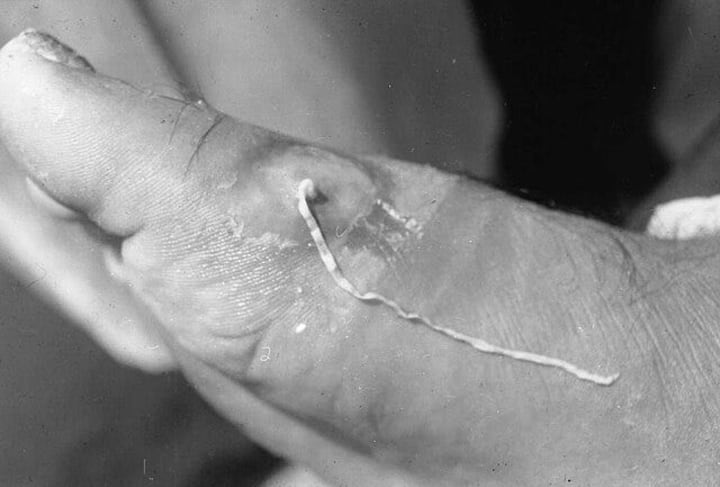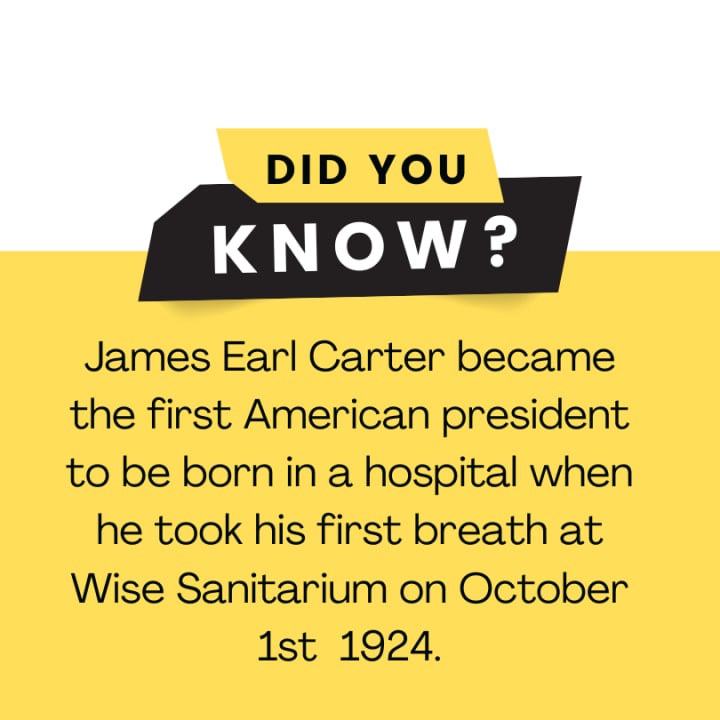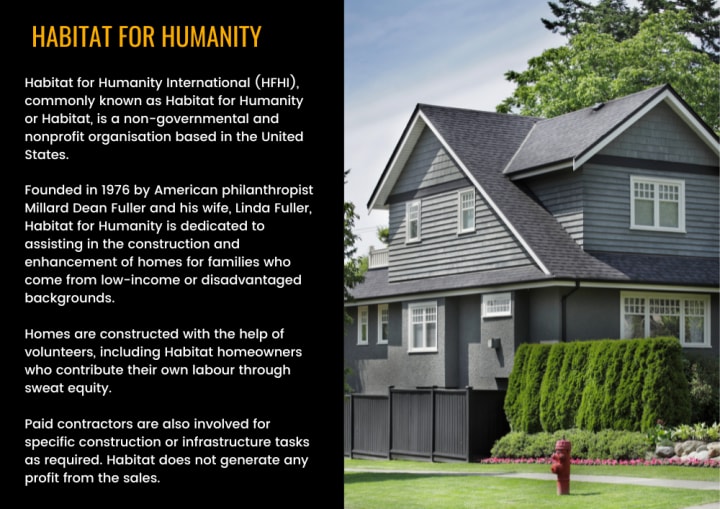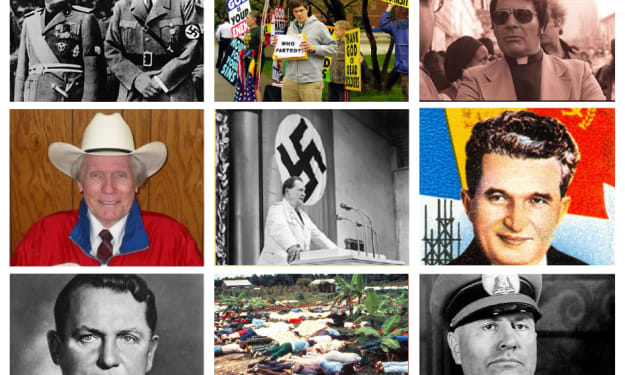Carter's Legacy: A Beacon of Hope and Humanity Beyond the Oval Office
How one man's Post-Presidency work continues to inspire change and hope worldwide

When historians and the public reflect on the tenure of James Earl Carter Jr., the 39th President of the United States, many reflect on a presidency challenged by economic difficulties and international crises.
Yet, it is Jimmy Carter's remarkable post-presidential career that has truly cemented his legacy as one of the most influential and beloved figures in modern American history. Through his unwavering commitment to peace, health, and human rights, Carter's encore performance on the world stage is where he truly shines.
The Birth of The Carter Center
Founded by then-former President Jimmy Carter and former First Lady Rosalynn Carter in 1982, The Carter Center has been a formidable force in the fight for human rights, the eradication of diseases, and the promotion of democratic values worldwide.
Its mission, in partnership with Emory University, is to advance human rights and alleviate human suffering. Through a remarkable combination of resolve, innovation, and collaboration, the Carter Center has not just envisioned a better world, but it has also taken concrete steps to make that vision a reality, instilling hope in the hearts of millions.
One of the Carter Center's most notable achievements is its near-eradication of Guinea worm disease. While the disease seldom kills, it does render afflicted individuals functionally impaired for several weeks to months. It primarily impacts residents in remote, impoverished, and isolated communities whose primary drinking water is open, stagnant surface water, like ponds.
When people consume water that has been contaminated, they may inadvertently ingest water fleas that are carrying harmful pathogens. Water fleas are eliminated in the stomach, while the infective larvae are released. Once inside, the parasite can live inside a person for 10–14 months before bursting out of the skin through a burning blister.
Most people who contract the disease don't usually know they have it, as signs of infection typically occur right before the worm emerges from the blister. During the emergence, those affected experience severe pain, which is frequently accompanied by a bacterial infection and paralysis.

Guinea worm's impact on individuals is both agonising and incapacitating. From an economic standpoint, they have devastating consequences. Children who are infected cannot attend school, while adults cannot carry out their farming or cattle-rearing responsibilities. In Mali, Guinea worm has earned the nickname "the disease of the empty granary" due to the devastating starvation it has brought upon communities.
Thankfully, there is a simple solution to this disease. Using a basic mesh fabric, water can be filtered to effectively eliminate copepods, resulting in water completely free of Guinea worms. For over thirty years, The Carter Centre has collaborated extensively with national health ministries to provide millions of free filters, educate individuals on their correct usage, and raise awareness about the significance of water filtration.
Despite the challenges faced, this simple intervention has successfully prevented numerous cases of Guinea worm disease in sub-Saharan Africa and parts of Asia.
From 3.5 million cases in 1986 to an astounding 27 cases in 2020, the Carter Center has fought relentlessly against this debilitating condition, freeing millions from its grasp. This monumental effort has eradicated the disease in 20 countries, showcasing what can be achieved with unwavering commitment and strategic action.

The Carter Center has also broken new ground in the mental health field, advocating for policies and practices that recognise the importance of mental well-being.
For instance, the Carter Center's mental health program in Liberia has made significant strides, training nurses to provide crucial care in remote areas and reaching thousands who would otherwise be left in the shadows. This initiative has improved the lives of millions of people with mental illnesses worldwide, marking a significant step forward in the global understanding and treatment of mental health.
The Carter Center's mission is far from over. With each passing day, it continues to tackle some of the world's most pressing challenges, driven by the belief that every person deserves to live in peace, free from disease, oppression, and suffering. Guided by the principles and vision of its founders, The Carter Center stands as a testament to what humanity can achieve when compassion, innovation, and perseverance converge.
The Camp David Accords
In 1978, President Jimmy Carter embarked on a mission that would etch his name in the annals of history. The stage was set at Camp David, a retreat that would witness one of the 20th century's most monumental diplomatic triumphs - the Camp David Accords.
The Camp David Accords, signed in 1978, were a historic milestone in international diplomacy. These agreements, the first-ever peace treaty between Israel and an Arab state, not only ended 30 years of hostilities but also showcased the power of diplomacy and negotiation over conflict and war. Jimmy Carter's pivotal role in these negotiations underscored his deep commitment to international peace, a principle that guided his presidency and post-presidential endeavours.

Perhaps the most significant achievement of the Accords was the peace treaty between Israel and Egypt, which ended 30 years of hostilities and opened the door to normalised relations. Carter's unwavering dedication to peace played a crucial role in this breakthrough.
Further, Carter's ability to bring Egyptian President Anwar Sadat and Israeli Prime Minister Menachem Begin to the negotiating table was a testament to Carter's indomitable spirit of reconciliation.
Through days of tense negotiations, Carter's unparalleled mediation skills shone brightly. He wasn't just a facilitator; he was a bridge builder, meticulously understanding and addressing the concerns of both sides to sculpt an agreement that seemed almost mythical in its ambition.
His hands-on approach and understanding of both parties' concerns were instrumental in forging the agreement.
However, the Camp David Accords were far more than just a treaty; they laid down a blueprint for Middle Eastern diplomacy, a framework that would guide future negotiations in a region where peace often seemed like a mirage on the horizon.
Yet, for all its brilliance, the Accords also spotlighted the intricate tapestry of Middle Eastern politics, notably leaving the Palestinian issue on the table unresolved. This underscored a fundamental truth about the quest for comprehensive peace - it's a complex, often Sisyphean, endeavor.
Nonetheless, Carter's legacy is undiminished. His tireless efforts at Camp David are a beacon of what's possible when peace is pursued with unwavering dedication. Awarded the Nobel Peace Prize in 2002, Carter's legacy is a clarion call to the world that even in the face of the most entrenched conflicts, the art of negotiation and diplomacy can and does prevail.
Habitat for Humanity
Habitat for Humanity, a global nonprofit working towards building safe, decent, and affordable housing, was catapulted into international fame primarily due to the involvement of President Jimmy Carter and his late wife, Rosalynn, in 1984.
Their dedication spotlighted the organisation's mission and transformed it into a global movement for housing justice.
Key Milestones in President Carter's Involvement
- 1984: President Carter began hands-on work with Habitat for Humanity, capturing public attention as he participated in a project in New York City. This initial involvement marked the beginning of a deep and enduring partnership.
- 1986: Launch of the first Jimmy & Rosalynn Carter Work Project in New York City, an initiative that not only renovated a neighbourhood but also set a precedent for future volunteer-driven projects.
- 2002: Winning the Nobel Peace Prize elevated President Carter's visibility to new heights, bringing his humanitarian efforts, including his work with Habitat for Humanity, into the international spotlight.
- 2017: In Canada, the 34th Jimmy & Rosalynn Carter Work Project commemorated the completion of more than 4,000 residences through construction, renovation, and repair, demonstrating the scope and significance of their efforts.

Perhaps the most immediate impact of President Carter's involvement was the significant boost in Habitat for Humanity's visibility and recognition worldwide. His Nobel Peace Prize win in 2002 further highlighted his humanitarian work, including his efforts with Habitat, bringing it to the attention of a global audience.
The dedication of President Carter to the cause of Habitat for Humanity prompted many others to donate and volunteer, increasing the organization's ability to meet the housing needs of the community. The organisation is still reaping the benefits of the tsunami of support that he inspired through his leadership, which reached well beyond the borders of the US.
A Legacy of Hope and Humanity
So, why is Jimmy Carter so beloved past his presidency? The answer lies in his continuous, unwavering commitment to making the world a better place.
Jimmy Carter's post-presidency achievements are a testament to his character and values. His genuine compassion, humility, and relentless pursuit of justice have endeared him to people worldwide. In an era where political figures often polarise, Carter's dedication to service and peace unites.
Through the Carter Center and his numerous humanitarian efforts, Carter has demonstrated that his commitment to bettering the human condition did not end with his presidency. Instead, it was the beginning of a remarkable chapter that has inspired countless individuals to work to make the world a more peaceful, just, and healthy place. Jimmy Carter's legacy is a testament to the power of compassionate leadership and a beacon of hope for future generations.
About the Creator
Chelsea Rose
I never met a problem I couldn't make worst.






Comments (1)
No doubt Jimmy Carter was a great humanitarian!